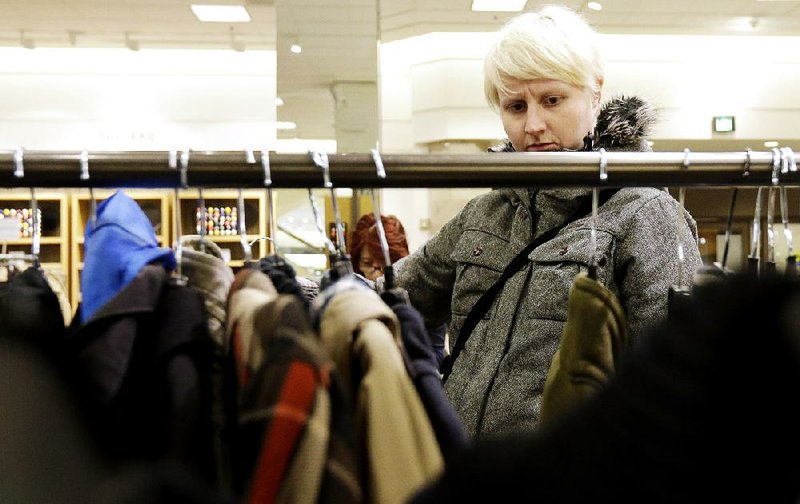WASHINGTON — Consumer confidence fell in January to its lowest level in more than a year, reflecting higher Social Security taxes that left Americans with less take-home pay.
The Conference Board said Tuesday that its consumer confidence index dropped 8.1 points in January from December to a reading of 58.6, the lowest since November 2011.
The index has declined for three straight months since hitting a nearly five year high of 73.1 in October 2012. It’s still above the post recession low of 40.9 reached in October 2011.
Conference Board economist Lynn Franco said the tax increase was the key reason confidence tumbled in January, making Americans less optimistic about the next six months.
For a worker earning $50,000 a year, take-home pay will shrink this year by about $1,000.
“It may take a while for confidence to rebound and consumers to recover from their initial paycheck shock,” Franco said.
The index fell sharply in December as congressional Republicans and President Barack Obama failed to reach a resolution on sharp spending cuts and tax increases.
Congress and the White House ultimately reached a deal on Jan. 1 to prevent income taxes from rising on most Americans. But they delayed the spending cuts for only two months. And they allowed a temporary cut in Social Security taxes to expire.
The survey was conductedthrough Jan. 17, at which point most people began to realize their paychecks were lighter.
“The uncertainty and bickering is weighing it down,” said Richard F. Moody, chief economist at Regions Financial Corp. in Birmingham, Ala. “I’m convinced that a lot of people didn’t realize that their taxes were going up in January. These higher payroll taxes, they’re going to put that much of a dent in disposable income.”
Consumers were less confident in January than December about current economic conditions, the survey showed. And their outlook for the job market also grew more pessimistic.
Most economists attributed the drop in confidence to the increase in payroll taxes.
Joshua Shapiro, chief U.S. economist at MFR Inc., also noted that sharp divisions in Washington over spending cuts and tax increases likely made consumers less optimistic about the economy, too.
“All the negative news about the dysfunction in Washington surrounding the fiscal cliff negotiations contributed to the December plunge, and ongoing shenanigans concerning the debt ceiling and fiscal sanity in general continued to weigh in January,” Shapiro said.
Taxes are rising at a time when wages and salaries are barely growing. The combination is expected to hurt consumer spending and slow economic growth.
Many economists predict economic growth slowed in the October-December quarter to an annual rate of around 1 percent.
That would be much weaker that the 3.1 percent rate in the July-September quarter. Most economists don’t expect growth to pick up much in the first quarter of 2013.
Home prices in 20 U.S.cities rose in the 12 months to November by the most in more than six years, showing the housing market will play a more central role in the U.S. economic expansion this year.
The S&P/Case-Shiller index of property values increased 5.5 percent from November 2011, the biggest year-overyear gain since August 2006, according to data released in New York on Tuesday. Confidence sank more than forecast in January as consumers were stung by a drop in take-home pay, another report showed.
“Rising home prices are providing an important cushion,” said Millan Mulraine, a New York-based economist at TD Securities LLC, who correctly forecast the gain in values. Lower confidence andsmaller paychecks “will slow consumer spending this quarter, but the effect will abate in coming months.” Information for this article was contributed by Martin Crutsinger of The Associated Press and Shobhana Chandra and Jeanna Smialek of Bloomberg News.
Business, Pages 25 on 01/30/2013

